Kindergarten is like babysitting.
All they do is play all day.
Kindergarten should be cancelled this year.
If my kid was in kindergarten, I wouldn’t send them to school. What’s the point?
The list of things I’ve heard about Kindergarten could go on for days, but I’ll stop there. My favourites are the comments made by those who forget or don’t know they’re talking to a kindergarten educator. Sometimes I fight back and make people regret (very quickly) they ever started such a conversation, other times it’s futile. I smile and nod and change the subject.
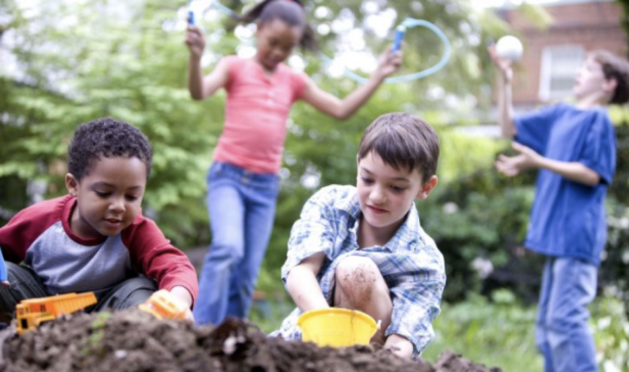
Play is defined as an activity engaged in for enjoyment and recreation. Purposeful play adds the element of being mindful of the learning opportunities present during such play. Now let’s add school into the mix.
There are those that believe that play is for home, school is for learning. There are those that believe play is for kids and that it doesn’t have a place outside of Kindergarten. There are educators who see a school day as a six-hour block of time to cover curriculum so report cards can be written, and therefore, there is just no time for play.
But what if I said, play IS learning. When we start to see the value in play and what it does for our learning landscape as educators, we will find time. When children are engaged in their learning, it’s simple…something sticks.
We play in my kindergarten classroom because that’s how learning happens. It’s not because we can’t fill in a worksheet or follow rote instructions for a mindless task. We can do those things too. We just don’t want to!
Watch any young learner build a tower with blocks. Watch how they place different sized and shaped blocks in certain positions, so their tower stands the tallest. Watch the early learners try and understand why their structure continues to fall. Some will continue to rebuild the same way. Some will figure out they need a wider base. The conversations that happen as a result, the questions, we, as educators get to ask to guide their thinking is a huge part of their learning. We don’t simply allow the tower to fall and move on. We don’t just watch the tallest tower be built and continue with our day. We give our learners opportunities to keep discovering. We do this through conversation. That’s all part of play. But if we never give them the time, the blocks, the freedom to explore, that learning will never happen.
Our linear measurement unit happened to overlap with our space inquiry last year. We built an entire solar system on our classroom ceiling and a mini one on our floor. This was weeks in the making. All play based. Now…what to do with a solar system model that takes up most of the carpet? Well, let’s throw some math in there. We were learning to block code with Dash and Dot and it was decided that Dash needed to travel through space. Why? Why not? Through trial and error, they created a code for Dash to travel accurately through their solar system using math rods as measurement tools. Through play, Kindergarteners learned to block code. Math – check. Science – check. Art – check. Shall I go on? I could have given them the worksheet with pictures of markers and pencils to measure using paperclips…it definitely would have been less work for me, but would they have gotten anything out of it the second they were done? Let me tell you…the answer is no.
Play is essential to learning – for all ages. Exploratory play gives students opportunities to put plans into action. I could tell them that a wider base makes a stronger tower, but isn’t it better to let them figure that out for themselves? Play allows students to test hypotheses, to discover solutions to their problems. Play allows students to make mistakes and try again.
Every I wonder what happens when I… question is the perfect time to play. My answer is always, Let’s find out! And let’s find out doesn’t mean I stand at the front of the room and show them, it means putting them in the driver’s seat of their learning and letting them find out firsthand.
That happens through play.
All they do is play in Kindergarten.
You’re right. Isn’t it amazing?!
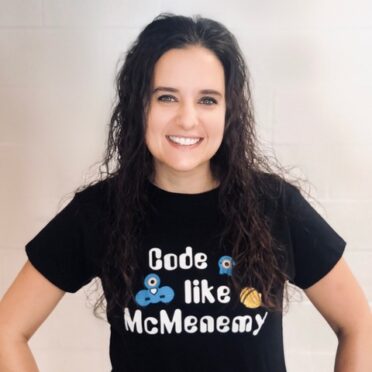
Daphne McMenemy is an educator, author and speaker. Her first book, Gracie, about a young girl whose learning is brought to life when her teacher introduces her to coding and a new way of thinking, is based on her personal experiences in the classroom. As a child and young adult, Daphne was focused on becoming an educator with purpose, to improve the lives of her students and make an impact on their educational journey. As an educator for the past 15 years, she has created opportunity for children in her classroom to explore learning in innovative ways. Using STEM to engage children as young as kindergarten age in discovering learning through coding, she develops numeracy, literacy and computational thinking skills through creative exploration. Her experience in the classroom has proven to support even the most hesitant learners in building confidence in their abilities and engaging in the learning process. Daphne is committed to building relationships, meeting students where they are, appreciating each individual, and finding opportunity to engage and motivate students in creative, innovative ways. Her newest venture allows her an extensive creative outlet as the Editor and Social Media Director of Code Breaker Inc.
Check out her book “Gracie” on Amazon!
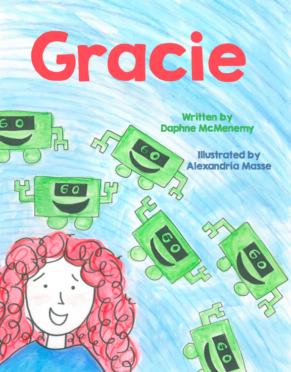
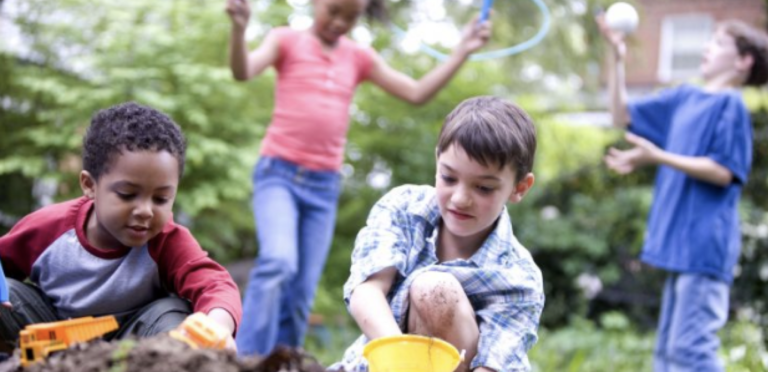
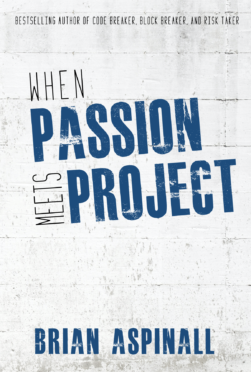 For all the kids who grow up in a small town and think they don’t stand a chance. You do. I was once that kid.
For all the kids who grow up in a small town and think they don’t stand a chance. You do. I was once that kid.